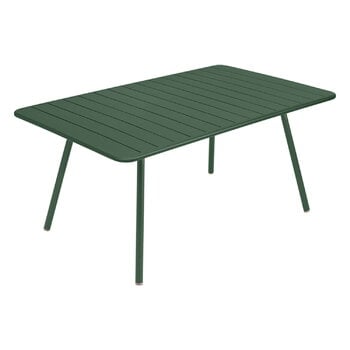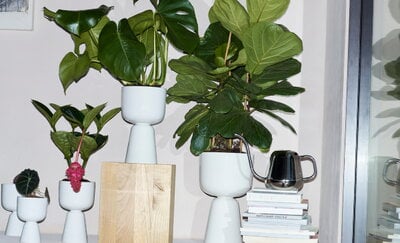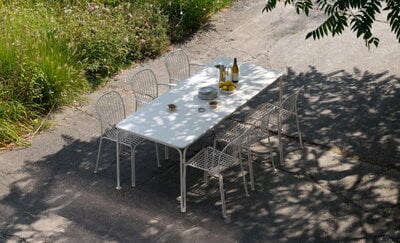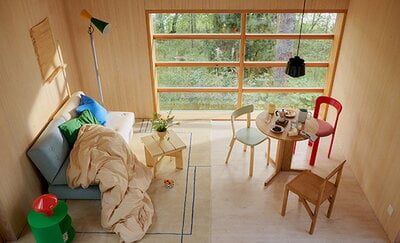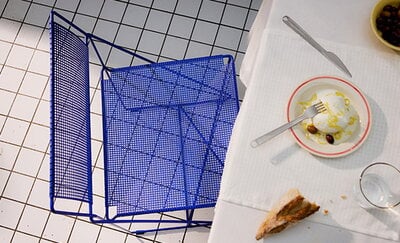The Luxembourg table by Fermob comfortably seats 6 to 8 persons. The garden table is made of aluminium, a material that is both light and resistant, making the table perfect for outdoor use on the patio, terrace, balcony or garden.
Fermob's Luxembourg collection is a true classic that you may have encountered, for example, in the parks of Paris: the garden furniture was originally designed in 1923 for the city's famous Jardin du Luxembourg. In 2004, Fermob asked designer Frédéric Sofia to create a modern interpretation of the legendary outdoor furniture – the result is an elegant and endlessly multifunctional range of patio furniture that carries a name inspired by the furniture's original location. Fermob also still manufactures the original models for the public parks and gardens in Paris.
Please note that Fermob reworked the cedar green colour in 2015 to give it a lighter, contemporary appearance. The classic hue is the oldest in the Fermob colour chart, and it is safe to say that although slightly different than before, it definitely has not lost any of its charm and authenticity.

